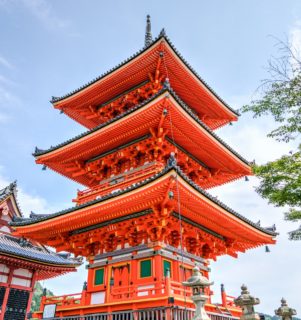 I have been traveling for the past couple of weeks in Japan and Taiwan, so I thought I’d write a brief post about cannabis in East Asia. In addition to having a cannabis business practice, our firm’s other main focus is on international business — we have lawyers in Beijing and in Barcelona — so East Asian marijuana businesses would fit nicely into our niche practices.
I have been traveling for the past couple of weeks in Japan and Taiwan, so I thought I’d write a brief post about cannabis in East Asia. In addition to having a cannabis business practice, our firm’s other main focus is on international business — we have lawyers in Beijing and in Barcelona — so East Asian marijuana businesses would fit nicely into our niche practices.
The problem is that cannabis legalization still seems a long way off in these countries. Anecdotal information isn’t super helpful, but I was really struck in Japan by how strongly most people I talked to felt about marijuana remaining illegal. It felt like the attitude of the Just Say No campaign of the 1980s and 1990s has fully seeped into the culture. There seems to be a feeling that marijuana is a drug and drugs are bad and that marijuana is clearly very different from alcohol and tobacco. Similar to the United States there is also a criminal argument. People in the U.S. are often told that if you buy on the black market, your money will probably end up in the hands of the Mexican cartels. In Japan, they say the same thing, but it’s the yakuza (Japanese organized crime) who are the bogeymen.
Several months ago, a former actress, Saya Takagi, was indicted for possession of marijuana when authorities in Okinawa found 55 grams of marijuana in the home she shares with two housemates. Before her arrest, Takagi has been a medical marijuana activist in Japan and had run for the legislature on a medical marijuana platform, but gained relatively little support. In a sad story, Japanese authorities went so far as to arrest a man for using medical marijuana to help alleviate symptoms of liver cancer. That man, Masamitsu Yamamoto, died of liver failure while his criminal trial for possession was ongoing. Despite all of that, cultural attitudes seem cemented in place.
The type of rhetoric I heard about marijuana in Japan was similarly stated by Taiwanese and Chinese people I spoke with as well. Many people in China assume that if something is related to drugs, the triads (Chinese organized crime) are involved.
In searching for something to tie together why attitudes toward marijuana are so hostile, the most glaring possibility is China’s sordid history with opium. In the mid nineteenth century, the Qing dynasty in China fought two wars with the United Kingdom, the First Opium War and the Second Opium War. In these wars, the British fought for, among other things, the right to continue selling opium into China, where a huge addiction problem had been developing throughout the nineteenth century. The British were successful in these wars despite being outmanned, and the wars ended, specifically the First Opium War, with treaties being signed that were heavily in the United Kingdom’s favor (China gave up Hong Kong in the first one). China was basically forced to keep opium legal and allow the British to make money off of its addicted citizens, which had a devastating effect in China. Opium specifically, and drugs generally, are now tied in the cultural memory to the humiliation of these wars (though the British come off as worse actors historically).
This is all without mentioning the effectiveness of the United States as an international drug control ambassador. The U.S. tied all sorts of development funds and other economic relations to harsh, U.S. style drug criminalization throughout the 20th century. In many of the countries that we had relationships with, the diplomacy worked, and drugs were portrayed as one of the greatest evils in society.
Throughout East Asia, there is a widely-held deep-seated belief that drugs are bad and have harmed society in the past. In the United States, many people feel the same way, but we are largely removing marijuana from the larger umbrella of “drugs” in the culture. That separation is not happening right now in East Asia, and it may not happen for a long time. In the United States, it is easier for ideas that are outside the mainstream to find a footing because of our ability to maintain a counterculture. Then, social changes can seep from the counterculture into the mainstream. Asian countries tend to be a little more homogenous in those attitudes, so changes in ideas have a tougher time gaining initial footing. Still, you are starting to see a little more activism in East Asia dedicated toward legalization, so we may see some changes over time. But I wouldn’t expect it any time soon.























